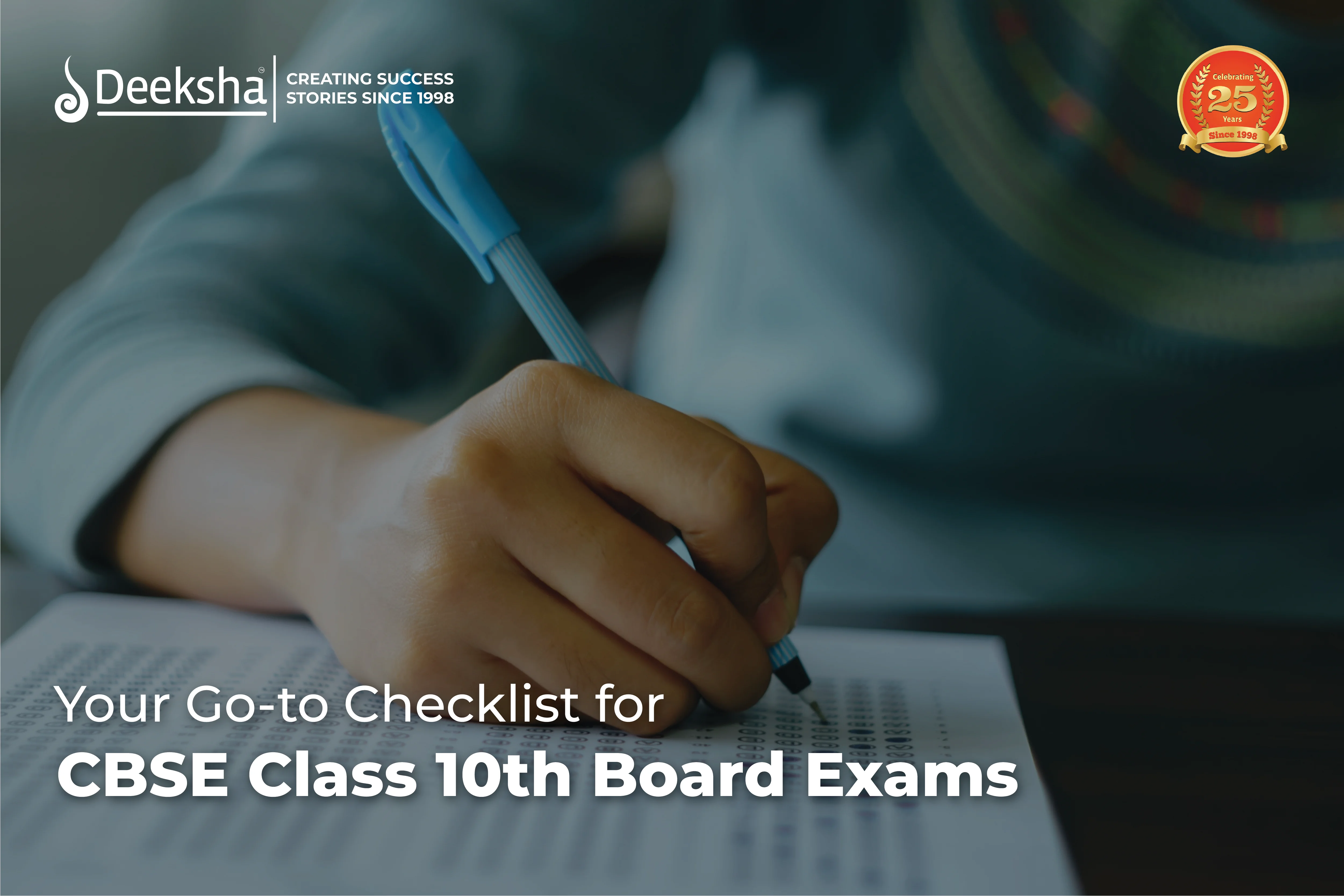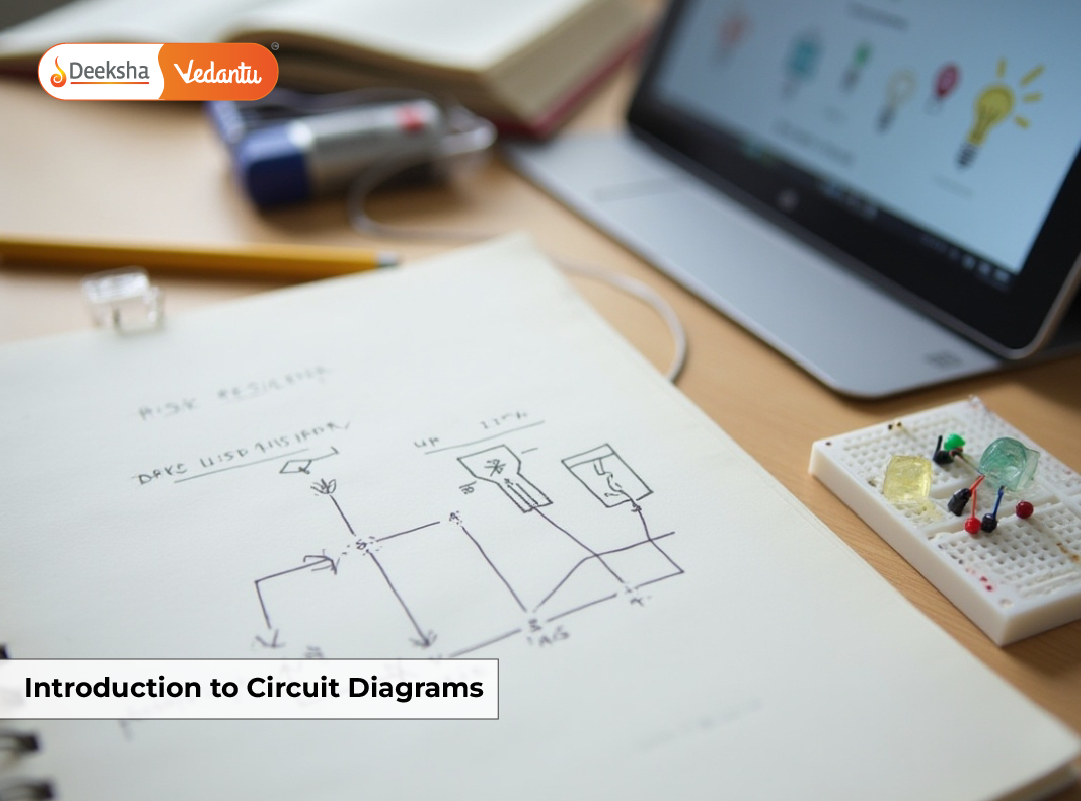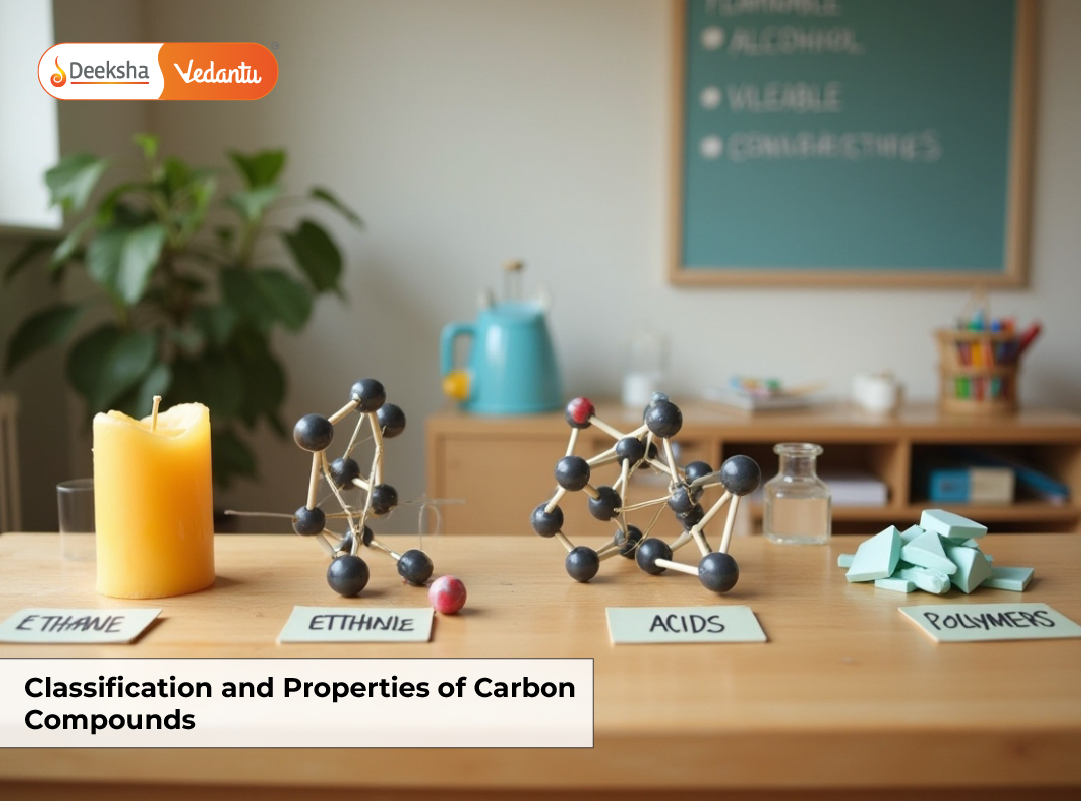The Class 10 CBSE board examinations are a significant turning point in a student’s academic life. These exams are essential for establishing a solid groundwork for future academic and professional endeavours and securing admissions to advanced secondary institutions. Students have had to adjust to new ways of learning and take examinations in an unfamiliar setting due to the disruption to the school year caused by the pandemic.
Students who want to do well on the CBSE Class 10 board examinations should study methodically and in a structured manner. With a thorough checklist, students may ensure they have covered all the topics they need to before taking their exams. However, the extensive curriculum and pressure to do well make it difficult for students to build a checklist that includes all the relevant subjects and concepts.
Class 10 Winning Science Project Ideas
Important Checklist for CBSE Class 10 Board Exams
Checklists are beneficial when preparing for class 10 board exams as they systematically track what needs to be done. They can help students to identify areas where they need to focus more, ensure that they cover all important topics and give a sense of accomplishment when tasks are completed.
1. Start Practicing and Revising NCERT Questions
If you want to score well in the CBSE Class 10 board exams, you must first review and practice NCERT questions. The textbooks published by NCERT are widely regarded as the most comprehensive and reliable resource for test preparation.
Revision is a crucial step in being ready since it allows students to enhance their learning and pinpoint areas they need to improve. Before moving on to the next chapter, students should ensure they fully grasp the material covered in the previous one.
Additionally, students may improve their problem-solving abilities and learn the test format by working through sample NCERT problems. Students may get to know the format of the CBSE Class 10 board examinations and the kind of questions that will be asked by practising NCERT questions.
In addition to answering NCERT practice problems, students should also take notes on key concepts, formulae, and definitions. Use these notes to review material efficiently before an exam. The test schedule and the questions offered may be better understood by working through questions from past years.
Students may prepare for the CBSE Class 10 board examinations early by revising and practising NCERT questions. It may help children build problem-solving abilities, which are critical for doing well on tests, and cover all the necessary topics.
2. Familiarise Yourself with the Exam Pattern
Our second essential tip for passing the CBSE Class 10 board examinations is studying past exam patterns. Students who are familiar with the typical format, grading scale, and types of exam questions generally do better on the exam.
The written test is worth 80 marks, and the internal evaluation portion is worth 20 marks in the CBSE Class 10 board exams. The written exam has four distinct types of questions: objective, very short, short answer and essay-type questions.
Students should know how much time they need to spend on each test portion and how their performance will be graded. The objective questions carry one mark each, while the long-answer carry 5-6 marks. The best way to prepare is to focus on improving your score throughout.
Students shouldn’t only know how exams are structured, how questions are laid out, and how to follow any special instructions given. As a result, they may finish their tests on time and score excellent marks.
If you want to do well on the CBSE Class 10 board examinations, you need to have a thorough idea of the exam format. It may help students plan their time efficiently, stay focused, and avoid making silly test errors. Students may learn more about the exam format and question types by taking practice mock exams and reviewing question papers from previous years.
3. Simulate a Real Examination Setup
Third, on our must-do list for the CBSE Class, 10 board examinations are to create an exam environment that is as close as possible to the actual exam. Simulating similar conditions to an examination hall regarding noise level, lighting, and other factors is essential.
- By recreating the conditions of an actual exam, students may become used to the pressure and time limits they will face on test day.
- Students may prepare for exams by scheduling time for each topic and taking practice tests or old exam papers simultaneously. They need to establish an atmosphere suitable for learning by turning off their phones, eliminating distractions, and sitting at a desk or table.
- Students should use the practice tests as an opportunity to monitor their progress and work on improving their time management skills. They may time themselves with a stopwatch or a timer and try to finish the paper on time.
- The last step for students is to reflect on their mock exam results and plan how to improve. Before the final examinations, students should reflect on their past performance and make an effort to improve.
Students might benefit from extensive preparation for the CBSE Class 10 board examinations by mimicking an actual examination environment. It may condition students to work under timed conditions similar to the actual exams, helping them emotionally and physically for the test day. For the mock exams to be most beneficial, students should schedule separate time blocks for each topic, restrict the number of outside distractions, and practice time management.
4. Eat Healthy & Get Proper Sleep
The fourth factor on our go-to checklist for the CBSE Class 10 board examinations is prioritising health and well-being by eating properly and getting enough sleep. The stress of finals may cause students to put their health on the back burner, affecting their grades. A well-balanced diet and sufficient rest are essential for students to achieve their academic potential.
Eating healthy before exams improves performance. They should eat mostly fruits, vegetables, whole grains, and lean proteins and limit processed meals and sugary drinks. Students should prioritise sleep and food. Sleep reduces stress and anxiety and improves memory and attention.
Students should sleep 7-8 hours a night in the weeks before exams. Avoid caffeine and electronics before bedtime since they impair sleep. Finally, light exercise and breaks will improve your health and mood. Prioritising health may improve test scores, memory, and focus.
5. Keep Everything Ready for Exams
Test readiness is the sixth point on our handy checklist for the CBSE Class 10 board examinations.
- The first step is to compile a complete inventory of your exam-day necessities. Ensure you have everything from writing instruments to corrective tools, measuring implements, scientific calculators, and anything else needed during the exam. When you’ve finished making your list, recheck it to ensure you’ve included everything.
- You should also arrange your paperwork and stationery supplies. A pencil case, folder, or even a little bag will do. If you keep everything in its place, you won’t have to worry about forgetting anything or feeling overwhelmed on the test day. Keep your paperwork, including the admission card, in a secure and convenient location.
- You must chart your course to the testing facility in advance to guarantee your timely arrival. Discover the location of the examination facility and the means of transportation required to arrive at said destination beforehand. In case of any uncertainties, it is highly recommended to conduct a preliminary trial of the intended route and its estimated duration a couple of days before the scheduled examination. This shall facilitate your timely arrival to the examination venue without the inconvenience of being stuck in traffic on the examination day.
Looking For Commerce Stream After Class 10?
Additional Tips
Many students find the CBSE Class 10 board examinations a complex and nerve-wracking experience. Students may do a few more things to prepare for examinations beyond the five main points included in our standard checklist.
Effective time management should be a top priority. Create a study plan that provides you adequate time to read about and practise with everything in the curriculum. Don’t fall behind or put things off.
Remembering to keep your spirits up and strong is also important. Have faith in yourself and your ability, and push through any nervousness or doubt that may be holding you back. Relax and unwind by taking pauses as needed and participating in stress-reducing activities.
These extra considerations might help students do better in the CBSE Class 10 board exams. Reducing anxiety and stress and increasing productivity may be accomplished via well-managed time, an optimistic outlook, and accepting help when required.
Conclusion
The CBSE Class, 10 board examinations, are important in your educational path. Students may do their best work and reach their academic objectives with some planning and preparation.
The handy five-point checklist will enable students to score well while taking the CBSE Class 10 board examinations. Start studying early, learn the test layout, practice in a simulated exam environment, care for your physical and mental health, get enough rest, and ensure you have all you need to succeed. These suggestions might help students feel more comfortable and prepared on test day.
Students should remember that the CBSE Class 10 board examinations are a small component of their educational experience. No matter the outcome, students should keep their eyes on the prize of education and personal development. Children can excel academically, given the correct approach, preparation, and support.
Crucial Life Skills for 10th Graders
Important Links for students in CBSE board
Table of Contents















Get Social